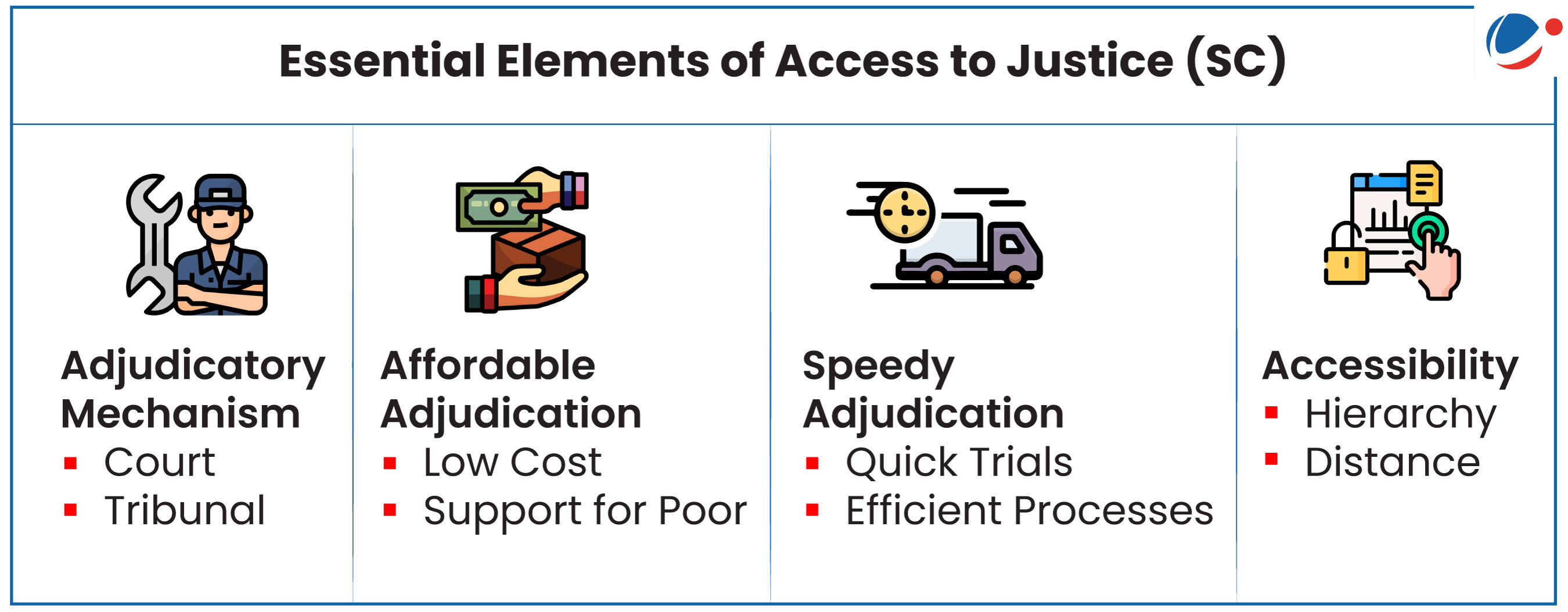Acknowledging the right to access to justice as the cornerstone of democracy, SC recently imposed a penalty on a petitioner for filing multiple frivolous litigations that burden the judicial system.
- A frivolous litigation is a lawsuit that lacks any arguable basis either in law or in fact and intends to harass, or delay the judicial process.
- The issue was also taken up by the apex court earlier in the Subrata Roy Sahara Vs Union of India (2014), Dalip Singh v. State of Uttar Pradesh and others (2010), and the K.C. Tharakan Vs State Bank of India & Ors (2023).
Right to Access to Justice
- Meaning: It is a basic principle of the rule of law and deals with the ability of people to seek and obtain a remedy through formal or informal institutions of justice for grievances.
- SC in Anita Kushwaha v. Pushap Sudan (2016) held Access to Justice is a Fundamental Right under Article 14 (Right to Equality) and Article 21 (Right to Life and Personal Liberty).
Other Provisions related to Right to Access to Justice
- Constitutional
- Preamble covers social, economic and political justice.
- Directive Principles of State Policy under Article 39A (Right to free legal aid).
- Article 32 (Right to Constitutional Remedies) Article 226 (Power of High Court to Issue Writs).
- Public Interest Litigation: Liberalised the rule of locus standi (where only the aggrieved person can file a case for the enforcement of right), to allow public spirited persons or organizations for the same.
- Alternative Dispute Redressal Mechanisms (ADR): Grievance Redressal with lesser formality at lower cost.





